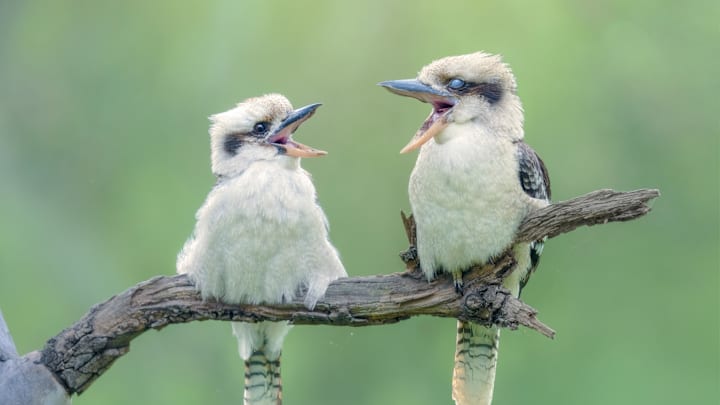Back in 1986, researchers Bob Seyfarth and Dorothy Cheney took infant rhesus and Japanese macaque monkeys and switched them shortly after birth. Each was placed in a socially similar but acoustically different environment. The question: Would the monkeys develop regional vocalizations that were contrary to how their species normally communicated? Can animals actually develop regional accents or language in the same way a Boston human will inevitably pronounce park as pahk?
How Environment Affects Animal Vocalizations
For decades, scientists have leaned on the idea that animal communication is more dependent on genetics than locale. A dog is not going to learn to meow just because it’s raised around cats. But it’s possible for animals to adopt more subtle inflections that are not necessarily native to their ancestry.
As BBC Science Focus points out, numerous studies have observed animals modifying their communication depending on their environment. Chaffinch birds, for example, don’t put the same flourishes on their songs when raised in isolation as they do when raised in a social setting, giving them a regional voice. Other songbirds change up their tunes based on what locals are doing: White-crowned sparrows will combine elements of several different songs in different ways depending on where they are.
The same has been demonstrated in goats. One 2012 study found that younger goats (kids) alter their bleating to match the bleats of goats they’ve just met in a social setting.
These are not accents as humans think of them: A bird won’t adopt a British lilt just because their owner has relocated from New York. But if one applies the definition as a distinctive method of expression inspired by a region, then animals do indeed have accents.
Why Do Some Animals Have ‘Accents’?
Some animal experts theorize that certain species use accents to identify associates from untrusted strangers. It’s not that a goat, or bird, should fear their peers; it’s that an unfamiliar sound may signal predators, and identifying threats is key to the survival of a species.
As for those switched-at-birth primates: Typically, rhesus monkeys like to make a noise known as a gruff when playing, while Japanese macaques usually make a cooing sound. Both species can use the same noises, just in different contexts. But their foreign environment made virtually no difference in their vocalizations: As resus monkeys gruffed, Japanese macaques cooed. Put another way, dropping a monkey in Boston isn’t going to suddenly get them grahffing.
Get Answers to More Big Questions:
